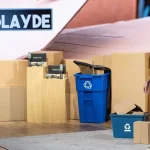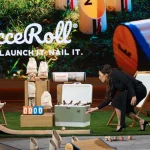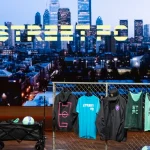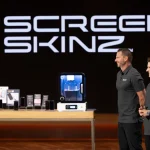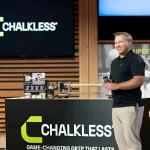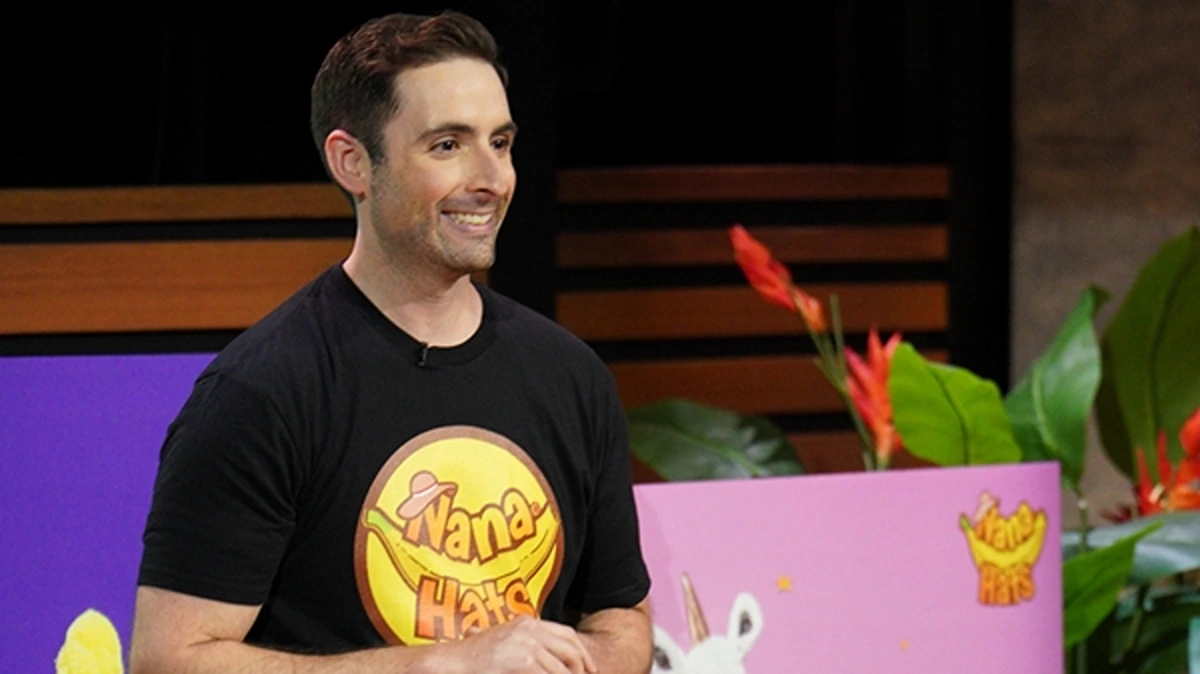
Imagine walking into your kitchen, bananas in hand, and instead of the usual race to eat them before they brown, you pause and place a tiny crocheted hat on the stem. It sounds silly, perhaps even absurd. But for Nana Hats, what started as a quirky idea to slow banana ripening became a real business and a spotlight moment on Shark Tank.
Founder Sean Adler pitched a product that many initially chuckled at, but which held a real consumer need: reducing food waste by keeping bananas fresh longer.
Adler’s journey began when he noticed bananas in his own home turning brown too quickly. He discovered that bananas emit ethylene gas, which accelerates ripening.
The unique solution was a silicone cap fitted at the banana stem, topped by a crocheted hat to slow that process. It’s whimsical in appearance but rooted in an everyday frustration. The name “Nana Hats”? A playful twist that helped make the product memorable.
The Shark Tank Moment: When Silly Met Strategic
On Shark Tank Season 14, Episode 8, Adler entered the Tank asking for $150,000 for 10 % equity. He presented Nana Hats to the Sharks. A two-pack of caps and hats sells for $12.99, with a manufacturing cost of around $1.95 per two-pack.
The Sharks initially responded with smiles, glossing over the quirkiness of banana hats. However, quickly the conversation shifted to the business fundamentals:
- How strong is the patent protection? Adler had pending utility patent claims on the silicone cap mechanism.
- What’s the cost, margin and scalability? With $1.95 cost vs $12.99 price, the margin looked promising.
- What’s the market size? Everyone uses bananas. Thus, reducing waste is a broad problem.
- Is the novelty enough to sustain business beyond novelty? The Sharks pushed Adler on how he’d move beyond the funny product into a business with staying power.
Ultimately, Adler struck a deal. He accepted an offer of $150,000 for 20% equity from Sharks Lori Greiner and Peter Jones. That leap from “silly idea” to “real business backed by experienced investors” is what makes Nana Hats compelling for entrepreneurs.
Why Nana Hats Worked?
There are various reasons why Nana Hats worked. Let’s look at some of those:
- Clear pain point: Bananas spoil too quickly; a simple solution resonates.
- Low cost, tangible benefit: The price is low, and the benefit is tangible. Less brown bananas, less waste.
- Memorable branding: Crocheted hats on bananas, unexpected, fun, shareable. It lends itself to social media and gift-type purchases.
- Scalable product logic: The two-pack model with potential for different themed hats offers product extensions.
- Appeal beyond novelty: The product isn’t just a gimmick; its value lies in actual preservation.
These elements transform what many might write off as a “cute gimmick” into a product with a business foundation.
The Challenges Behind the Aprons
Of course, any product that looks “funny” also carries risk. For Nana Hats, the business hurdles included:
- Durability & effectiveness: The product must deliver real fruit preservation, not just novelty. If it fails, the joke becomes the burden.
- Retail viability: Getting shelf space in grocery stores and distinguishing the product amidst household gadgets is tough. Adler admitted he was actively pursuing grocery chains.
- Sustaining interest: Novelty items can spike in demand quickly, then fade. To thrive long-term, Nana Hats must move beyond impulse buys into recurring sales, expansions or complementary products.
- Brand perception vs functional credibility: With a fun product, the founder must balance humor with performance, ensuring the product is taken seriously.
- Manufacturing and supply chain scale-up: While Adler began assembling units on his couch during lockdowns, scaling to mass retail requires robust manufacturing and quality control.
These challenges don’t negate the business—they simply define the next stage of growth.
The Post-Shark Tank Story: Where Nana Hats Stands Now
Since the episode aired, Nana Hats has seen some promising metrics. According to a follow-up article:
- Sales by the end of 2022 were reported to be around $750,000.
- They received approximately 12,000 sales inquiries and emails after the episode aired, a jump in visibility.
- Adler continues to build the brand, with sales via Amazon and other online channels, plus wholesale orders.
While Nana Hats hasn’t yet become a household name on par with some of the large Shark Tank successes, its journey is instructive: a small product, smart pitch, real traction, and potential for further growth.
Lessons for Founders: From Silly Idea to Business Reality
There are some important lessons for the budding entrepreneurs. Let’s look at some of those:
- Don’t dismiss the “funny” idea: Many of the best businesses start with a quirky insight. Fun can be an asset if matched with purpose.
- Validate beyond the gag: Ensure your product solves a real problem. Nana Hats addresses banana spoilage, something most households experience.
- Know your numbers: Adler entered the Tank with cost per unit, price, and distribution channels. Investors like clarity.
- Prepare for scale-up: Going from living-room production to retail requires new systems, logistics, manufacturing, and staffing.
- Balance branding with function: Novelty grabs attention; performance retains customers.
- Leverage visibility intelligently: Moments like a Shark Tank appearance provide a boost, but sustaining business means ongoing marketing, channel expansion, and product line growth.
Why This Story Resonates
In a world packed with high-tech pitches, AI startups and complex platforms, Nana Hats stands out because of its simplicity. Moreover, it reminds us that business doesn’t always require rocket science. Sometimes, it requires a fresh idea and the right execution.
For viewers, the story is both entertaining and enlightening: a banana with a hat might make you smile. Though it also makes you think, what everyday problem is waiting for your solution?
From the couch-constructed units in lockdown to the stage of Shark Tank, to six-figure sales and a deal with seasoned investors. Nana Hats proved that “silly” can be a serious business.









